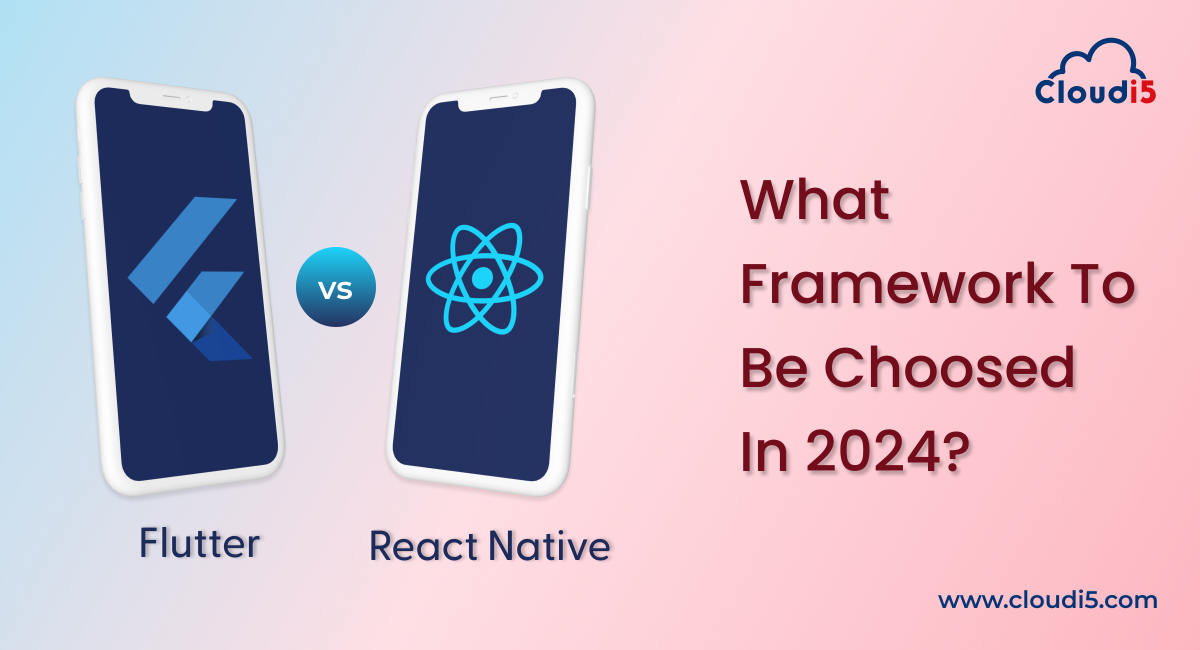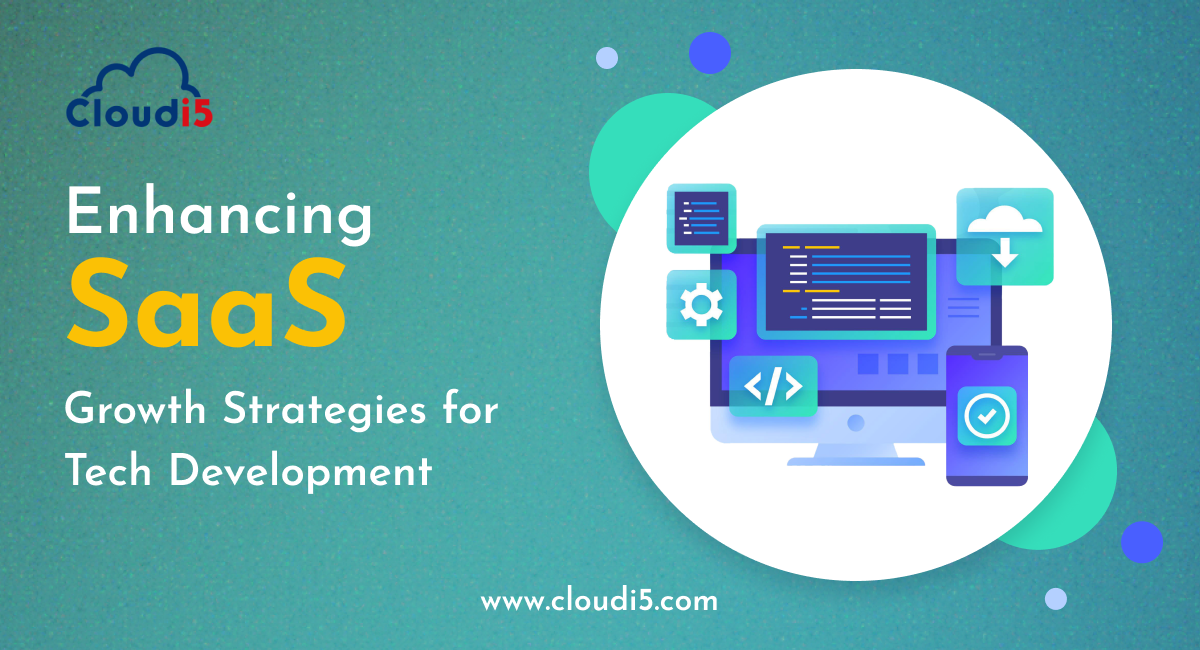
Flutter Vs. React Native: Choosing The Right Mobile App Framework In 2024
Feeling the weight of a big decision on your shoulders? Choosing the right framework for your mobile app can be downright mind-boggling. Flutter and React Native, the two shining stars of cross-platform development, both promise sweet success, but leave you wondering: "Which one should I pick?"
Fear not, intrepid developer! I'm here to be your guiding light. This blog is your comprehensive roadmap, packed with insights into Flutter and React Native's strengths, weaknesses, learning curves, performance, and community support. By the end, you'll be wielding the knowledge to make an informed choice, leaving confusion in the dust.
So, ditch the indecisiveness and join me on this exploration! Let's find the perfect framework to bring your Mobile App vision to life!
Understanding the Core
- Flutter: Backed by Google, Flutter is a complete UI toolkit offering a vast library of pre-built widgets and a unique rendering engine called Skia. It uses Dart, a modern language known for its readability and ease of learning.
- React Native: Developed by Meta (formerly Facebook), React Native leverages the popular JavaScript library React, allowing developers to reuse web development skills for mobile apps. It relies on native components for a platform-specific look and feel.
Key Differences to Consider
Performance:
- Flutter: Generally lauded for its smoother performance due to its direct compilation to native code. Ideal for animations and complex UIs.
- React Native: Performance can vary depending on the app's complexity and native code integration. May experience slight lags in highly interactive scenarios.
Learning Curve:
- Flutter: Dart, while easy to learn, requires developers to pick up a new language. Existing web development knowledge might not translate directly.
- React Native: Utilizes JavaScript, a widely used language with ample learning resources. Easier for web developers to transition into.
Development Speed:
- Flutter: Hot reload feature allows for instant preview of code changes, accelerating development time.
- React Native: While not as fast as Flutter's hot reload, third-party tools like Expo offer similar functionality. Development speed depends on the development team's familiarity with JavaScript and native platforms.
UI/UX:
- Flutter: Custom rendering engine ensures pixel-perfect UI consistency across platforms, ideal for unique and branded designs.
- React Native: Utilizes native UI components, leading to a more platform-specific look and feel, potentially requiring platform-specific adjustments.
Community & Support:
- Flutter: Growing community with strong backing from Google. Comprehensive documentation and active forums.
- React Native: Larger and more mature community with extensive learning resources and third-party libraries.
Cost:
- Development: Both frameworks are open-source, resulting in similar development costs. However, developer familiarity with each language can influence project timelines and budget.
- App Maintenance: Flutter's single codebase can lead to lower maintenance costs compared to potential platform-specific changes in React Native.
Still scratching your head over the differences between Flutter and React Native? Let's simplify things with a straightforward table. If the idea of key differences is about as clear as mud, fear not! This table will make it crystal clear:
|
Feature |
Flutter |
React Native |
|
Language Used |
Dart |
JavaScript |
|
Performance |
Potentially faster, compiles to native code |
Smoother user experience, may lag slightly in heavy computations |
|
UI Consistency |
Consistent UI across platforms |
More flexibility for platform-specific customizations |
|
Development Speed |
Can be slightly slower due to compilation |
Faster development with readily available components |
|
Learning Curve |
Requires learning Dart |
Leverages existing JavaScript and React knowledge |
|
Community & Support |
Growing community, good documentation |
Large and active community, extensive resources |
|
App Size |
Larger app size due to compiled code |
Smaller app size |
|
Suitable for: |
Complex animations, high-performance apps, consistent UI |
Fast development, platform-specific customizations, existing JavaScript expertise |
Other Considerations
- App Complexity: For highly complex apps with intricate UIs and animations, Flutter's performance and customizability might be advantageous.
- Team Expertise: If your team has JavaScript or React experience, React Native could offer a smoother learning curve. If you prioritize performance and a unique UI, Flutter might be a better fit.
- Project Timeline: Flutter's hot reload and faster development cycles can be crucial for projects with tight deadlines.
- Long-Term Maintenance: Both frameworks offer good long-term support, but React Native's larger community might provide wider assistance in the future.
Making the Choice
Ultimately, the "best" framework depends on your specific project requirements and team capabilities. Here's a quick decision-making guide:
Choose Flutter if:
- Performance is paramount.
- You need a highly customized UI.
- Your team prefers Dart or is new to mobile development.
- You have a tight development timeline.
Choose React Native if:
- You prioritize a native look and feel.
- Your team has JavaScript/React experience.
- You value a larger community and ecosystem.
- Long-term maintenance support is crucial.
Remember: Both Flutter and React Native are powerful tools, and the best approach often involves experimentation and considering your specific needs. By carefully evaluating the factors discussed above, you can make an informed decision that sets your mobile app development project up for success.
Additional Tips
- Explore sample apps built with both frameworks to experience their UI and performance firsthand.
- Consider using a hybrid approach, leveraging both Flutter and React Native for different parts of your app based on their strengths.
- Stay updated with the latest advancements in both frameworks, as they continuously evolve and offer new features.
Conclusion
The choice between Flutter and React Native is not a one-size-fits-all answer. Both frameworks are excellent tools for building cross-platform mobile apps, but each shines in different areas. By carefully considering your project's specific needs, team expertise, and long-term vision, you can make an informed decision that sets your app up for success.
Ultimately, the choice between Flutter and React Native is not about picking a winner, but about finding the right tool for your specific journey. With a clear understanding of each framework's strengths and weaknesses, you can confidently embark on building your dream mobile app!





Leave Comments